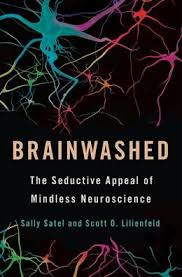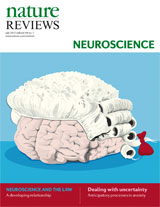 CLBB faculty member Lisa Feldman Barrett is the subject of a thoughtful profile in Boston magazine‘s July issue considering her work studying the nature of emotion—and trying to refute one of modern psychology’s most influential and celebrated thinkers.
CLBB faculty member Lisa Feldman Barrett is the subject of a thoughtful profile in Boston magazine‘s July issue considering her work studying the nature of emotion—and trying to refute one of modern psychology’s most influential and celebrated thinkers.
Barrett, who was recently named University Distinguished Professor of Psychology at Northeastern University, the university’s highest honor, has spent decades trying to prove her belief that the foundational findings of psychologist Paul Ekman are unsound. In the late 1960s and 1970s, Ekman, a psychologist in San Francisco, developed a theory that people all over the world express and experience emotion in the same way, regardless of sex, age, race, background or any number of biological and sociological factors. He would go on to develop a system by which he argues anyone can read and interpret others’ reflex-like microexpressions, allowing them to assess, among other things, whether someone is lying.
Ekman’s work became the basis for special training by the CIA, the FBI, the Department of Homeland Security, the New York Police Department, and the Transportation Security Administration—but some researchers argue that it oversimplifies vast and complicated processes behind real emotion, Barrett chief among them.
“People don’t display and recognize emotions in universal ways, she believes, and emotions themselves don’t have their own places in the brain or their own patterns in the body,” the Boston Magazine article reads. “Instead, her research has led her to conclude that each of us constructs them in our own individual ways, from a diversity of sources: our internal sensations, our reactions to the environments we live in, our ever-evolving bodies of experience and learning, our cultures….
“It’s a paradigm shift that has put Barrett on the front lines of one of the fiercest debates in the study of emotion today,” the article asserts, “because if Barrett is correct, we’ll need to rethink how we interpret mental illness, how we understand the mind and self, and even what psychology as a whole should become in the 21st century.”
Read the whole article at BostonMagazine.com.


 Brainwashed: The Seductive Appeal of Mindless Neuroscience, a new book by psychiatrist Sally Satel and psychologist and professor Scott O. Lilienfeld, argues that current real-world applications of neuroscience may be misguided and even harmful.
Brainwashed: The Seductive Appeal of Mindless Neuroscience, a new book by psychiatrist Sally Satel and psychologist and professor Scott O. Lilienfeld, argues that current real-world applications of neuroscience may be misguided and even harmful. ABSTRACT: In the past 8 years, the US Supreme Court has issued landmark opinions in three cases that involved the criminal culpability of juveniles. In the most recent case, in 2012, a ruling prohibited states from mandating life without parole for crimes committed by minors. In these cases, the Court drew on scientific studies of the adolescent brain in concluding that adolescents, by virtue of their inherent psychological and neurobiological immaturity, are not as responsible for their behaviour as adults. This article discusses the Court’s rationale in these cases and the role of scientific evidence about adolescent brain development in its decisions. I conclude that the neuroscientific evidence was probably persuasive to the Court not because it revealed something new about the nature of adolescence but precisely because it aligned with common sense and behavioural science.
ABSTRACT: In the past 8 years, the US Supreme Court has issued landmark opinions in three cases that involved the criminal culpability of juveniles. In the most recent case, in 2012, a ruling prohibited states from mandating life without parole for crimes committed by minors. In these cases, the Court drew on scientific studies of the adolescent brain in concluding that adolescents, by virtue of their inherent psychological and neurobiological immaturity, are not as responsible for their behaviour as adults. This article discusses the Court’s rationale in these cases and the role of scientific evidence about adolescent brain development in its decisions. I conclude that the neuroscientific evidence was probably persuasive to the Court not because it revealed something new about the nature of adolescence but precisely because it aligned with common sense and behavioural science.
